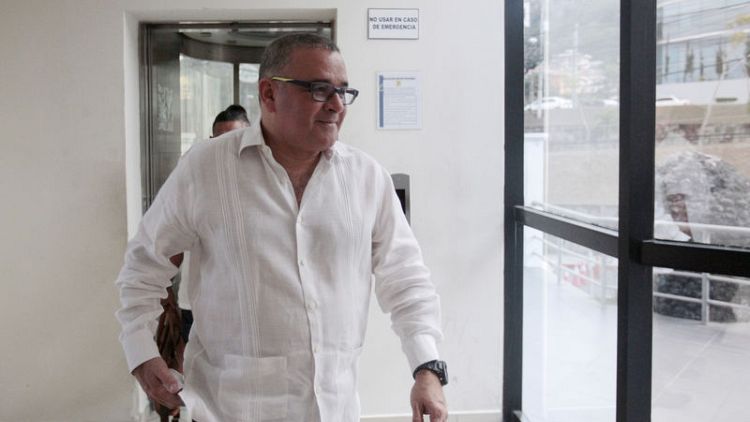By Nelson Renteria
SAN SALVADOR (Reuters) - El Salvador's Supreme Court on Thursday approved a request by the country's attorney general that former President Mauricio Funes be extradited home from Nicaragua to face corruption charges.
Funes, who governed El Salvador from 2009 and 2014, is accused of embezzlement and money laundering involving $351 million (£267.5 million). The court said in a statement that 15 magistrates unanimously approved the extradition request.
Funes, 59, said the extradition would violate his right to defence and that Nicaragua could choose to deny it. He has lived since 2016 in the neighbouring country, where he has political asylum that would protect him from extradition.
The former journalist who governed under the banner of the left-wing Farabundo Marti National Liberation Front (FMLN) party, which is an ally of Nicaraguan President Daniel Ortega, has said he is a victim of political attacks orchestrated by business interests and conservatives.
"How can they make a decision without having the arguments and reasons for which I believe that I'm an object of persecution?" he wrote on Twitter. "The decision belongs to President Ortega and not the Salvadoran judicial authorities."
Salvadoran prosecutors have alleged that Funes used public money to pay for credit cards, trips, home refurbishments, vehicles and hospital bills.
El Salvador has said its institutions are capable of bringing corrupt politicians to justice and that it does not need an internationally backed anti-corruption body like the International Commission Against Impunity (CICIG) in Guatemala.
But President-elect Nayib Bukele, who will take office in June, has proposed creating a group similar to CICIG to help the government root out corruption.
(Reporting by Nelson Renteria; Writing by Daina Beth Solomon; Editing by Peter Cooney)
